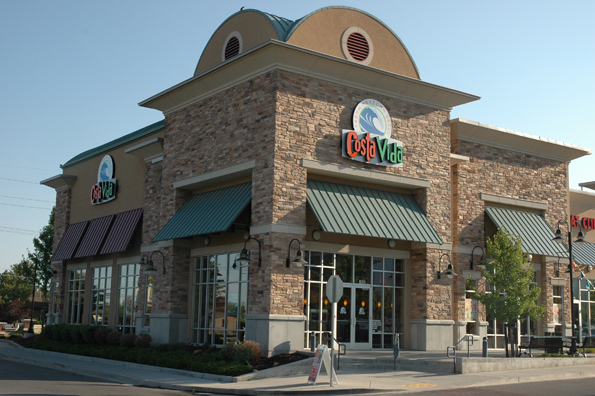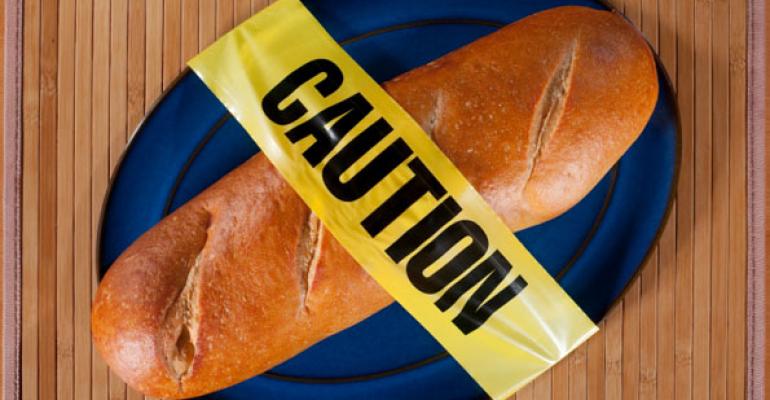Many restaurant chains are instituting rigorous policies for preparing and serving gluten-free offerings as awareness of gluten allergies and intolerance rises.
And while several operators said only about 1 percent to 3 percent of customers request gluten-free items, all insisted that taking extra effort to make such foods safely is good for business — and will keep them in compliance with upcoming mandates from the Food and Drug Administration.
“There’s no question that when you’re in a busy period and have to go away from the main line and make a gluten-free pizza, it’s a challenge,” said Bill Hancox, vice president of 40-unit Boston’s Restaurant & Sports Bar in Dallas. “But we didn’t want to see it as a problem, we wanted to embrace it and do what we could to make those customers comfortable.”
RELATED
• 4 steps to an FDA-approved gluten-free menu
• Chefs experiment to please gluten-conscious consumers
• More health and nutrition news
Done correctly, a Boston’s cook leaves the line, washes his hands, enters a walk-in and dons a clean apron and gloves. He then assembles the pizza on a manufactured crust using tongs and a ladle set aside for that item. Once baked, the pizza is cut with a specific knife on a clean cutting board.
Hancox makes sure that employees are following protocol with secret audits, in which he orders a gluten-free pizza and observes how it’s made.
Cooks also leave the line for gluten-free items at Russo’s New York Pizza and its sister concept, Russo’s Coal Fired Italian Kitchen. Gluten-free pizzas are baked in a convection oven on the sauté line, which is separate from the restaurants’ pizza ovens.
“We’re hand-tossing our dough, so they can’t be anywhere near all that flour,” said Anthony Russo, owner of the 32-unit Houston-based company.


He recently had his third-party toppings maker rework its recipes to ensure they were gluten-free.
“We also cook our gluten-free pastas in separate water,” he said.
At 60-unit Costa Vida, gluten-free corn tortillas are cooked first thing in morning so the comal can be sanitized and readied for flour tortillas. Corn tortillas are then stored in a closed container and opened only when necessary.
“When we’re making any item on the line, our goal is to never let any utensil touch the tortilla” or it’s considered contaminated, said Brian Collins, a Costa Vida store general manager. “If that happens, we change it out immediately.”
Collins father, Sean, who is CEO of the fast-casual Mexican chain in Lehi, Utah, said positive press about the mostly gluten-free menu has boosted sales noticeably, and now gluten-free orders comprise 5 percent to 10 percent of all orders.
“We were like most restaurants; 1 or 2 percent of our orders used to be gluten-free,” Collins said. “Now that we have a reputation for serving high-quality gluten-free [menu items], and we have to live up to that.”
When customers makes gluten-free inquiries at Tupelo Honey Café, servers immediately provide them with a gluten-free menu and ask whether they have celiac disease or want to remove gluten from their diet. According to Misse Caves, a regional operations manager for the six-unit Asheville, N.C., chain, each restaurant’s POS system has been programmed to ensure no mistakes are made with such orders.
“An entire screen comes up with gluten-free items only,” Caves said. “It’ll ask the server if the customer has an allergy or no allergy, and it won’t let them move past that until that’s stated.”
When printed in the kitchen, the order bears large type stating it’s gluten-free. If the customer is a celiac sufferer, the words “gluten allergy” are printed extra-large to stand out.
Caves said the expediter then calls out the order, and the cook with the gluten-free item leaves the line to prepare it. Once finished, the gluten-free item is marked with a toothpick and carried separately to the table — never with other food items on the same tray.
Like Hancox, Caves also conducts secret spot audits by ordering gluten-free items.
“I do it without them knowing it, and then I go see how they manage the process,” said Caves. “If I see people miss a step, they get retrained.”

